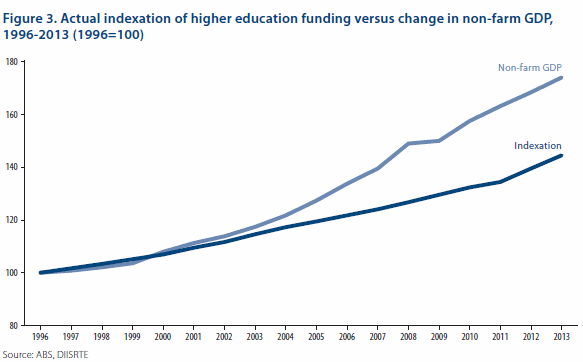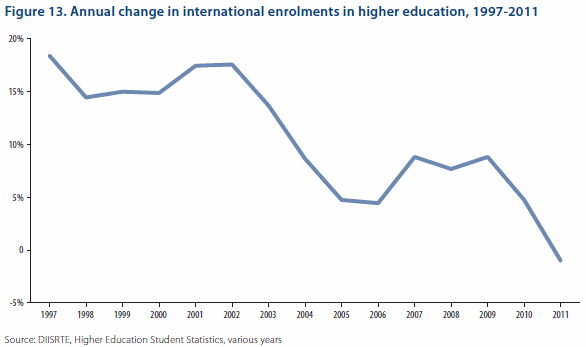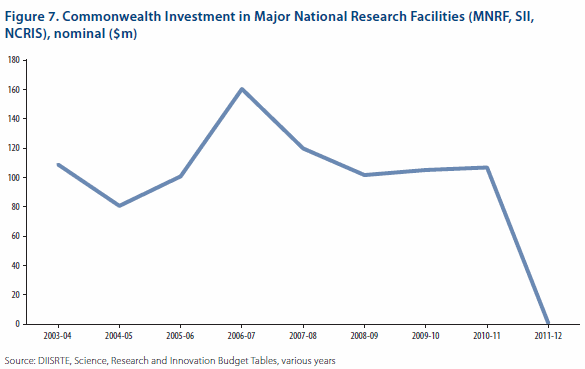|
News & Views item - December 2012 |
![]() Group of Eight Assesses Higher Education Financing. (December 4, 2012)
Group of Eight Assesses Higher Education Financing. (December 4, 2012)
The Group of Eight (Go8) today released its Backgrounder 31
Higher education financing![]() .
.
Overall we're left with the impression that as regards higher education the sector's health is, well, so, so.
The backgrounder opens with:
University funding is complex. It covers a range of different activities, sometimes in not entirely transparent ways. Policies and programs change over time. Inflation and movements in enrolments complicate the picture further. For all of these reasons, it is easy to make claims about funding over time that are only partly right. This paper looks at aggregate university funding, and funding for different university activities over time, adjusting for inflation and changes in student and staff numbers in order to develop a more informed and nuanced picture of trends.
Three of the 13 charts are shown below:

Note that from 2011 through 2013 indexation will have kept pace with non-farm GDP

Future dependence on funds from international student fees is problematical

Not a good sign if we are to keep up with our cohort nations
And the Go8's overall conclusions?
There have been some real improvements in universitiesí financial position
in recent years, due to improved indexation and significant boosts to capital
funding. Nevertheless, a longer term view shows that the sector is not doing
much better than standing still, when all costs and revenues are considered.
There has been no improvement in base funding rates and no allowance for the
step costs of rapidly growing enrolments. In both education and research,
indexation is a big and welcome improvement, but funding does not cover costs
and funding gaps remain. Research block grants have fallen in value and
competitive research grants are set to flatline. Funding for major research
infrastructure has lapsed and has not been renewed. A major boost in capital
funding has not addressed the maintenance backlog, and there is no funding for
major research infrastructure. Perhaps most ominously, the outlook for income
from international fees is fragile.